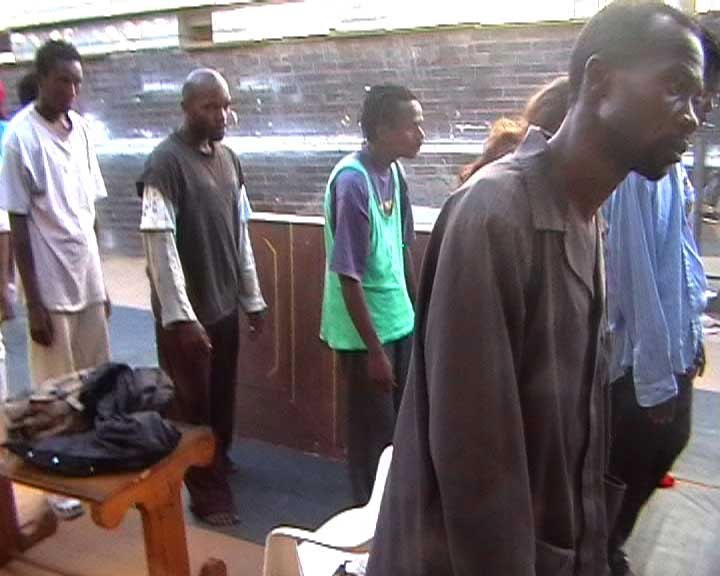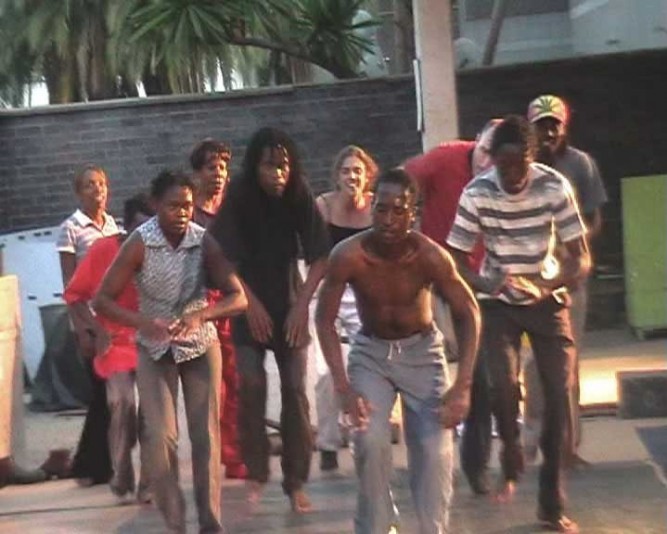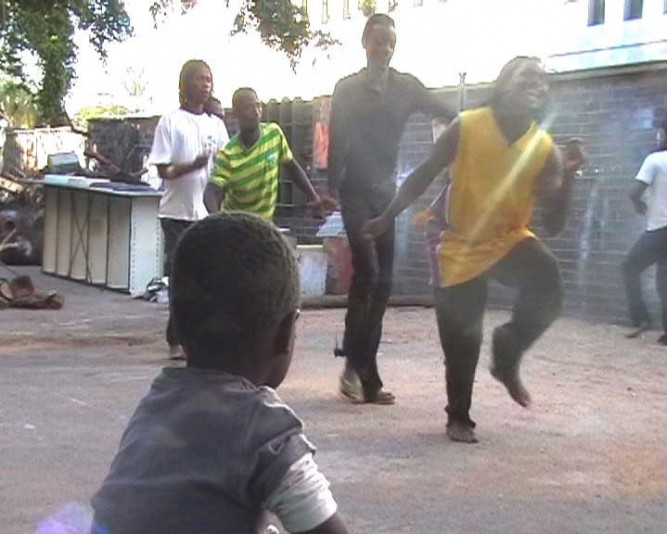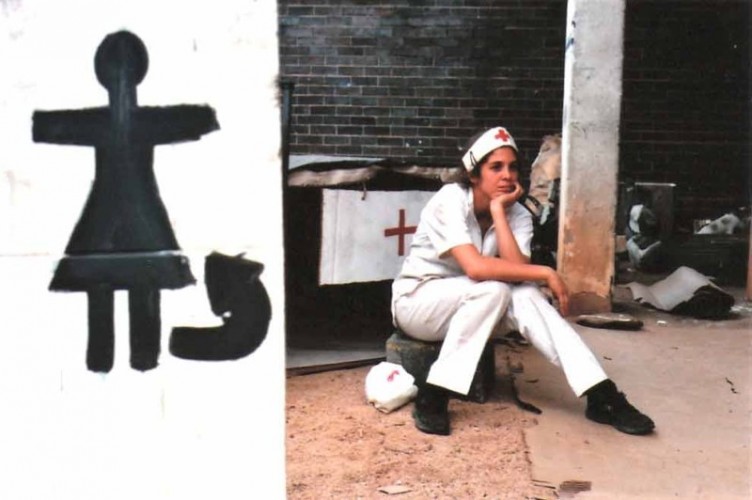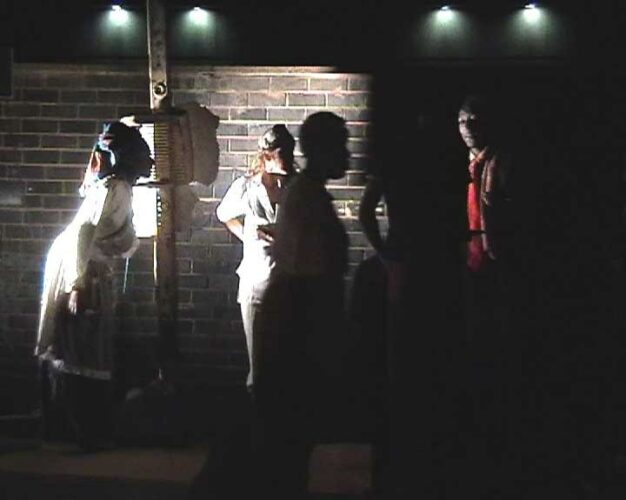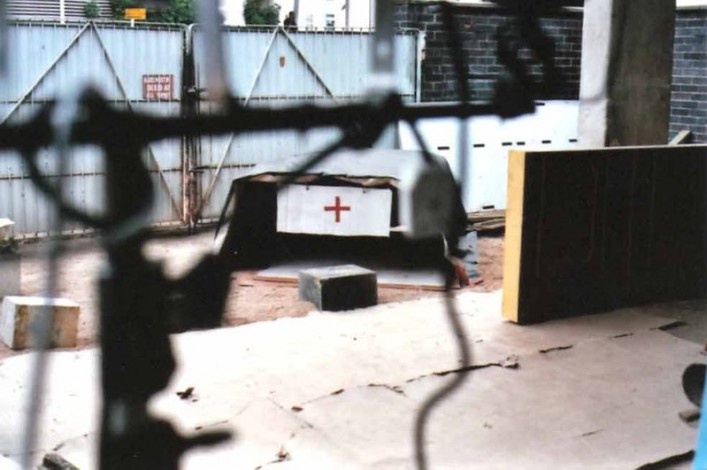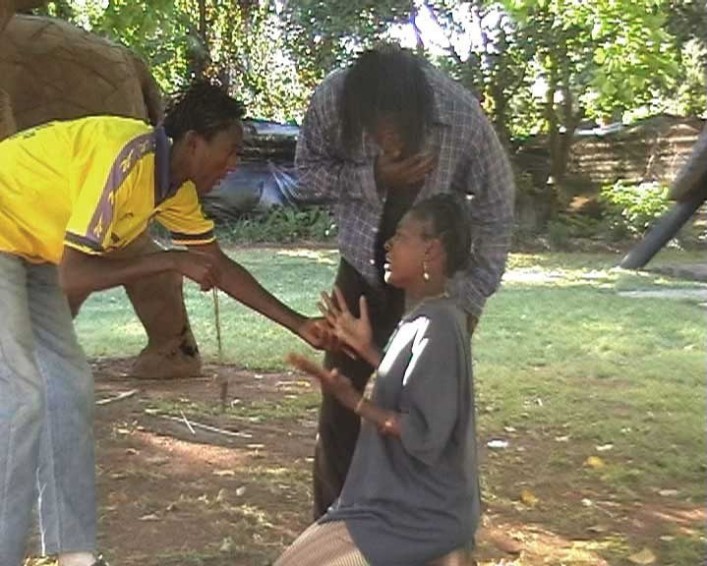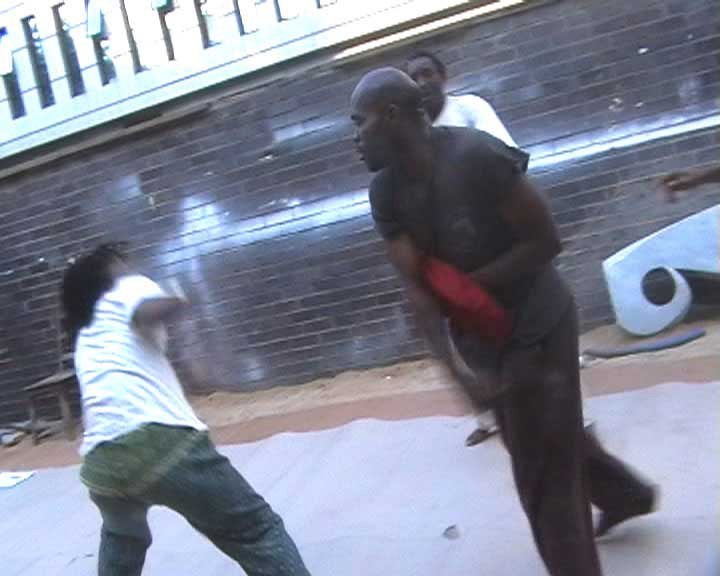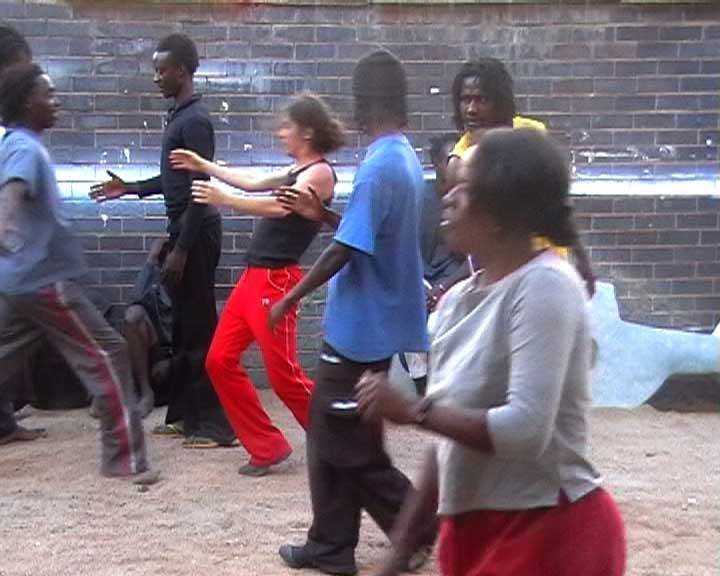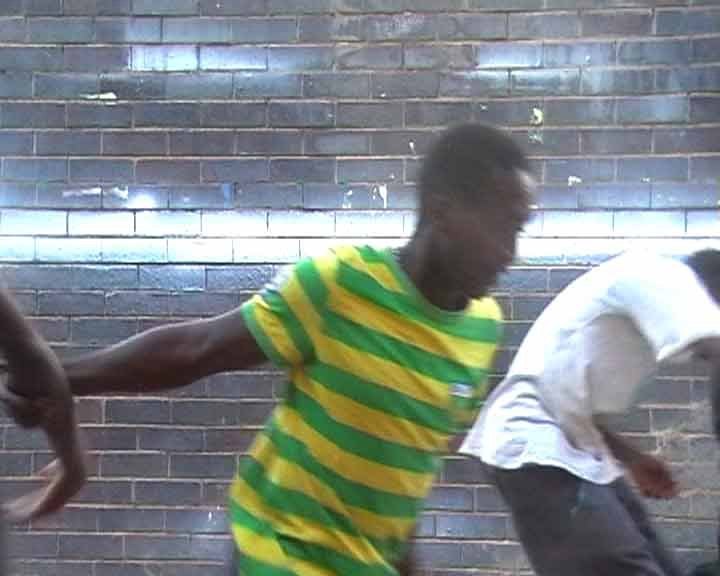Together with 15 local performers (dancers, actors, storytellers) from Harare, we worked 2 weeks on the project Settlement. Our goal was to make a finished performance, represented 3 consecutive nights at the HIFA-festival in Harare/Zimbabwe.
After reading BBC World Service website and googling like crazy, we had a lot of doubts on how we could create in a place where misery, poverty and political tensions are rising. How safe would it be? Which audience would we perform for? The internet didn’t really help us, it rather made us more confused and scared. A mail of the passionate director of the festival, Manuel Bagorro convinced us. We were to find out that the festival took a very daring and clear political stand, it assured us it was the right context to work in. But most of all, the daily process of working with these very talented and extremely generous local performers made us realize why we where there!
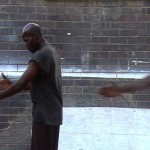
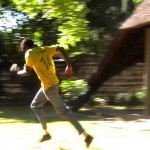
We worked under the shadows of the trees, too hot. Soon many young security people, who were temporarily employed and for whom it meant a welcome job, became our audience. They were laughing, reacting, moving with us, asking if they could join. It created a great atmosphere and public stage, a social event that was new to us. The performers themselves were quick in spirit and reaction. We were positively surprised that our proposals were not at all strange to them; they couldn’t wait to start the improvisation. Many times we found ourselves laughing heartily with the witty and sharp situations they came up with.
We also learned a lot of their well-developed improvisational skills as individuals and their alertness for the other, within a group. We felt this had to do with their strong cultural value of “sharing” with one another. Something the West has lost. As a result they were able to improvise for a long time, with many subtle variations, and we kept watching with pleasure, playfulness being a strong aspect of the improvisations.
At dusk the streets of Harare became completely deserted, an eerie city in limbo with police at the corners of big avenues. The festival-domain, an enclosed square in the city park, became a temporary island of joy, shared grief and energy.
One of the small stages was of particular interest, with local music. One evening we assisted an hours-long ritual for the dead, accompanied by circular patterns of beautiful mbira music and chanting. Then a jar with the ‘7 days drink’ passed the whole auditorium, as a symbol for sharing and respect for the others. It was an intense evening that made us witness an authentic, ancient world that is still very present. (But it took us some determination to drink the yeasty-tasting brew…)
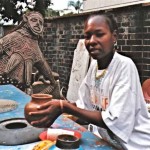
Through the dancers the harsh reality outside seeped in : frequent road blocks, identity-controls in buses, buses set afire, inflation that made prices triple in a few days.
Our performances went very well, we shared the joy of making a common reality, a new settlement that existed for a few days in the heat of Harare, with a very mixed and numerous audience. The latter we enforced by opening the gates that lead to the street, and welcoming young teenagers that were curious but didn’t have the money to enter the festival-site.
The performance had a certain roughness, a choice but also a consequence of the short creation time. We worked on energetic, ritual scenes. It was interesting for us to see the difference of the outcome with the previous creation of “settlement” in Sydney, Australia. Although very different, the humor became a common factor and…what is more healing then a good dose of laughter?
Even if just an instant, it brought us all together, made us chase away a morose feeling of powerlessness and made us get in touch with the desire to survive, to talk back, to step up.
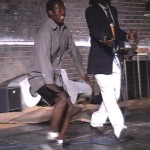
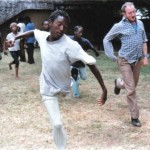
“1,2,…5,7,13,…uh,11,…”,
hands fly up in the air, feet as well, Jane, the chief of the Settlement, is counting the votes, to decide whether or not the ‘biznizman from Bulawayo” will be admitted to the instant-fabricated village. While counting the votes, she gets confused by the chaos. So she counts, recounts, forgets again and restarts, over and over.
The audience laughs, someone yells “it’s a rig”. Our performance is halfway. We are in the backyard of the National Gallery in Harare, with an open access to the street, the sounds echoes over the wall in the streets.
All of us: the performers, the audience, maybe some people walking on the street, know what we talk about: the endless recount and “verification-process” of the election results a few weeks before. It’s a small comment, an anecdotic moment even, but nevertheless a moment to let go one’s feelings of absurdity, depression and rage. We laugh, we react but we don’t forget.
